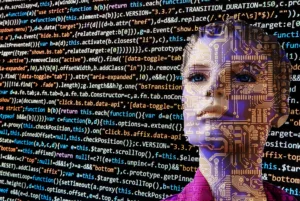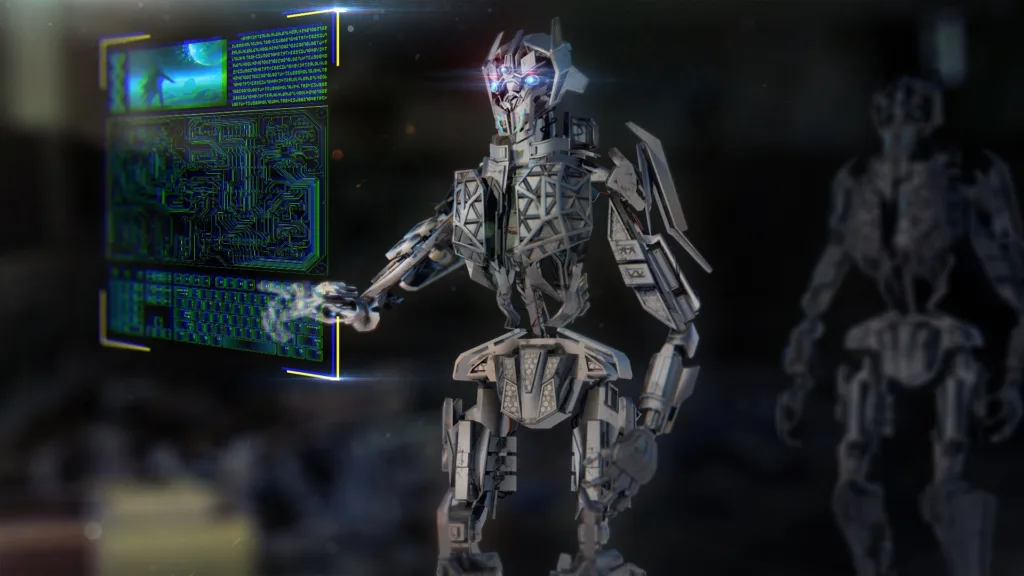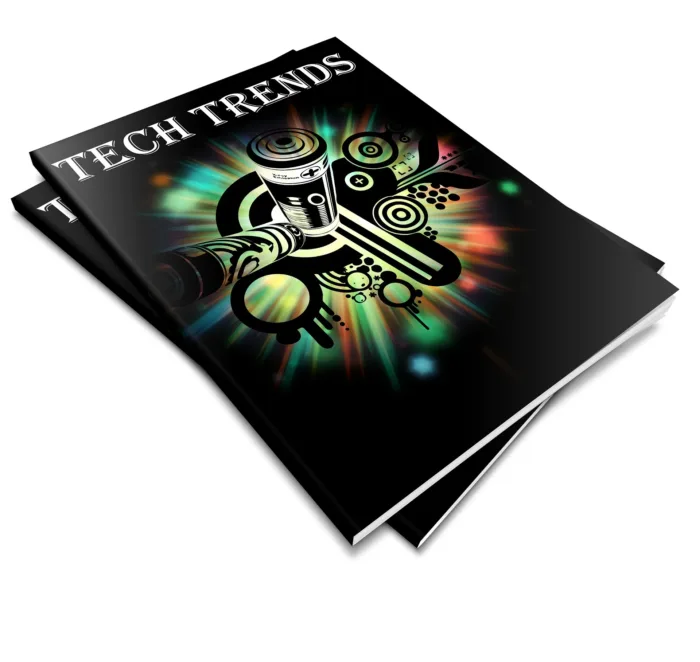The Future is Now: Embracing Artificial Intelligence’s New Era
 Artificial Intelligence (AI) has emerged as a revolutionary force, ushering humanity into a new era of innovation and possibilities. Once a realm of science fiction, AI has transcended its theoretical roots to become an integral part of our daily lives, shaping industries, transforming economies and challenging the boundaries of human potential. In this article, we embark on a journey to explore the diverse facets of AI, from its history and fundamental principles to its current applications, impact on society, and the ethical considerations that accompany its rise.
Artificial Intelligence (AI) has emerged as a revolutionary force, ushering humanity into a new era of innovation and possibilities. Once a realm of science fiction, AI has transcended its theoretical roots to become an integral part of our daily lives, shaping industries, transforming economies and challenging the boundaries of human potential. In this article, we embark on a journey to explore the diverse facets of AI, from its history and fundamental principles to its current applications, impact on society, and the ethical considerations that accompany its rise.
1. The Genesis of Artificial Intelligence:
The roots of AI can be traced back to the 1950s when pioneering researchers like Alan Turing and John McCarthy laid the groundwork for the field. Turing’s famous Turing Test proposed a method to determine whether a machine can exhibit human-like intelligence. McCarthy, on the other hand, coined the term “artificial intelligence” and organized the Dartmouth Workshop, marking the birth of AI as an academic discipline.
2. Understanding AI: Fundamental Principles:
 AI encompasses a broad spectrum of technologies and techniques that aim to simulate human intelligence in machines. Key concepts include:
AI encompasses a broad spectrum of technologies and techniques that aim to simulate human intelligence in machines. Key concepts include:
a. Machine Learning: A subset of AI, machine learning empowers machines to learn from data and improve their performance without explicit programming. Supervised, unsupervised, and reinforcement learning are common machine learning approaches.
b. Neural Networks: Inspired by the structure of the human brain, neural networks are computational models that excel in pattern recognition, natural language processing, and image analysis.
c. Natural Language Processing (NLP): NLP enables computers to understand, interpret, and generate human language, giving rise to virtual assistants and language translation services.
d. Robotics: Robotics blends AI and mechanical engineering to create intelligent machines capable of performing tasks in diverse environments, from manufacturing to healthcare.
3. The Evolution of AI Applications:

The evolution of AI applications has been nothing short of remarkable, revolutionizing industries across the globe. Some of the most prominent applications include:
a. Virtual Assistants: AI-powered virtual assistants like Siri, Alexa, and Google Assistant have become an indispensable part of our lives, streamlining tasks, and providing instant access to information.
b. Healthcare: AI is reshaping the healthcare landscape with advancements in medical imaging, drug discovery, personalized medicine, and patient care, enhancing diagnostic accuracy and treatment outcomes.
c. Finance: Financial institutions leverage AI algorithms for fraud detection, credit scoring, trading strategies, and customer service, optimizing processes and enhancing security.
d. Autonomous Vehicles: The advent of self-driving cars and autonomous drones represents a significant milestone in AI applications, promising safer and more efficient transportation solutions.
e. Manufacturing and Industry 4.0: AI-driven robots and automation systems are transforming manufacturing processes, increasing productivity, and reducing human errors.
f. Natural Language Processing (NLP): AI-powered NLP technologies enable sentiment analysis, language translation, and content generation, revolutionizing communication across languages.
g. Entertainment and Gaming: AI enhances user experiences in the entertainment industry through personalized content recommendations and immersive virtual reality experiences.
4. AI and the Workforce: Opportunities and Challenges:
AI’s integration into the workforce has sparked debates about job displacement and skills requirements. While some jobs may become automated, AI also creates new opportunities for skilled workers. To address the challenges, reskilling and upskilling programs are essential to equip the workforce with the necessary skills to thrive in the AI-driven economy.
5. AI and Society: Impact and Ethical Considerations:

The widespread adoption of AI brings both tremendous benefits and significant ethical challenges. Some of the key impacts and considerations include:
a. Privacy Concerns: AI relies heavily on data, raising concerns about user privacy and data protection. Striking a balance between data-driven AI advancements and individual privacy rights becomes paramount.
b. Bias and Fairness: AI algorithms can inherit biases from the data on which they are trained, leading to discriminatory outcomes in areas like hiring, lending, and criminal justice. Ensuring fairness and mitigating bias in AI decision-making is crucial.
c. Transparency and Explainability: As AI algorithms become more complex, they can be perceived as “black boxes,” making it challenging to understand their decision-making processes. Ensuring transparency and explainability is essential, especially in critical applications like healthcare and finance.
d. AI Governance: Implementing robust ethical guidelines and regulations for AI development and deployment is necessary to ensure that AI technologies serve the greater good and are accountable for their actions.
6. AI in Education: Revolutionizing Learning:
AI’s influence extends to education, where it has the potential to revolutionize the traditional learning experience. Personalized learning platforms, intelligent tutoring systems, and automated grading are examples of how AI can adapt education to individual student needs, fostering a more efficient and engaging learning environment.
7. AI in Healthcare: Empowering Medicine:
The healthcare industry is witnessing a seismic shift with AI-driven applications. From diagnostic assistance to drug discovery and patient monitoring, AI is empowering medical professionals, improving healthcare outcomes, and potentially saving lives.
8. AI and Climate Change: A Green Ally:
AI emerges as a potent ally in the fight against climate change. Its applications range from optimizing energy consumption to predicting natural disasters, offering innovative solutions to combat environmental challenges and promote sustainability.
 Artificial Intelligence has evolved from a conceptual idea to a transformative force that shapes our world. Its applications span across industries, driving innovation, revolutionizing processes, and providing solutions to some of humanity’s most pressing challenges. However, with such immense power comes the responsibility to address ethical considerations, safeguard privacy, and ensure AI is harnessed for the greater good. Embracing AI’s potential while remaining vigilant about its impact on society will pave the way for a future where humans and machines coexist harmoniously, fostering a new era of boundless opportunities and unprecedented progress. As we embark on this journey of discovery, the world of AI stands as a testament to the remarkable achievements of human ingenuity and the infinite possibilities that lie ahead.
Artificial Intelligence has evolved from a conceptual idea to a transformative force that shapes our world. Its applications span across industries, driving innovation, revolutionizing processes, and providing solutions to some of humanity’s most pressing challenges. However, with such immense power comes the responsibility to address ethical considerations, safeguard privacy, and ensure AI is harnessed for the greater good. Embracing AI’s potential while remaining vigilant about its impact on society will pave the way for a future where humans and machines coexist harmoniously, fostering a new era of boundless opportunities and unprecedented progress. As we embark on this journey of discovery, the world of AI stands as a testament to the remarkable achievements of human ingenuity and the infinite possibilities that lie ahead.
ALSO READ : Astrology: Understanding Shukra Gochar 2023 and Remedies for Certain Zodiac Signs
Contents
- 1 The Future is Now: Embracing Artificial Intelligence’s New Era
- 1.0.1 1. The Genesis of Artificial Intelligence:
- 1.0.2 2. Understanding AI: Fundamental Principles:
- 1.0.3 3. The Evolution of AI Applications:
- 1.0.4 4. AI and the Workforce: Opportunities and Challenges:
- 1.0.5 5. AI and Society: Impact and Ethical Considerations:
- 1.0.6 6. AI in Education: Revolutionizing Learning:
- 1.0.7 7. AI in Healthcare: Empowering Medicine:
- 1.0.8 8. AI and Climate Change: A Green Ally:
- 1.0.9 Share this:







 AI encompasses a broad spectrum of technologies and techniques that aim to simulate human intelligence in machines. Key concepts include:
AI encompasses a broad spectrum of technologies and techniques that aim to simulate human intelligence in machines. Key concepts include:


